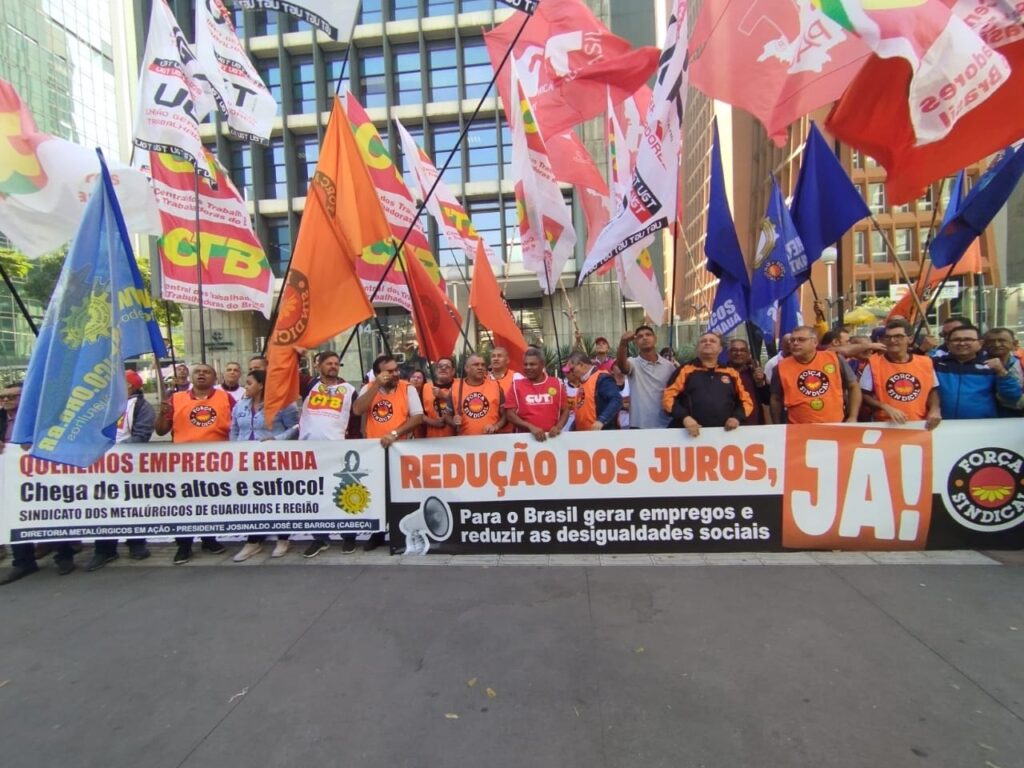4 August, 2023On 1 and 2 August, political activists and members of Brazil's union groups and social movements held demonstrations against high interest rates and to defend industrial policy, employment, income, and workers’ rights.
According to World Bank data, Brazil has some of the highest real interest rates in the world. Workers in the country argue that the high rates are deepening inequality, increasing people’s debt levels, hindering economic growth and hampering job and income generation.
This is why they took to the streets outside the central bank’s headquarters in Porto Alegre's old town during a two-day meeting of the bank’s Monetary Policy Committee (Copom). At this meeting, Copom announced that the base rate known as Selic would be lowered from 13.75% to 13.25%, a cut of only 0.5 percentage points, which the unions describe as unacceptable and insufficient.
The president of IndustriALL's affiliate CNM/CUT, Loricardo de Oliveira, said that the demonstration would help the central bank to see that its interest rate policy is hurting Brazil’s working class:
“We need to cut interest rates in order to have an industrial policy that invests in production and not just in the financial system. Interest rates must be at a level that is compatible with Brazil’s future – one in which strategic development helps to improve industrial production, decent work, income levels and workers’ rights.”
Meanwhile, Miguel Torres, president of another IndustriALL affiliate, CNTM/Força Sindical, warned that:
“High interest rates are sucking the blood out of our country and make development impossible. The interest that the government must pay is severely restricting the country's growth potential.”
Demonstrators called on the central bank’s president Roberto Campos Neto to stand down, claiming that he is keeping interest rates high to sabotage economic growth. Campos Neto was appointed by former president Jair Bolsonaro and his term of office ends on 31 December 2024.
A high Selic base rate costs Brazil billions of reais that could be used for investments in key sectors such as health care, education, housing, environment and industrial development.
